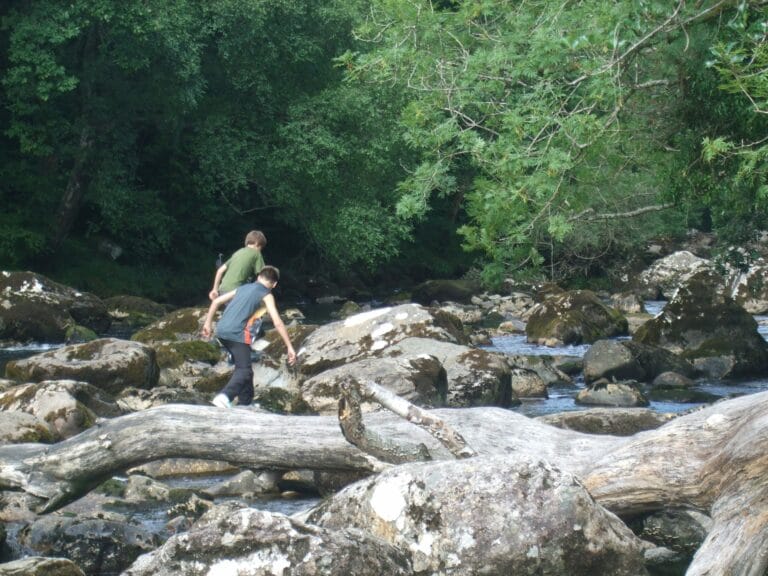10 things to do this summer to boost your children’s resilience
Boosting children’s resilience is all about helping children feel a sense of mastery and competence, that what they do matters and that they have control and influence over how they feel and what they achieve. Building children’s resilience involves allowing them to set goals, plan a route forward, take risks, rise to challenges and learn from mistakes. It also means helping them to find ways to regulate their emotions, experience contentment and build a happy memory bank that can help them through difficult moments.
There’s no holiday club or after school activity specifically for building children’s resilience. It is built from lots of different experiences which all contribute to kids feeling “I’ve got this!” (and “if I haven’t, I’ll find a way!”). But it definitely doesn’t come from sitting at home at a screen. So here are my top ten ideas for activities that you and your family can do this summer to boost your children’s resilience. Have fun!

Build a campfire in the evening. Let the kids collect the materials and lead the construction and, if appropriate, light the fire. Teach them fire safety rules and let them problem-solve if the fire starts to go out. Then sit round the fire. You can toast marshmallows, tell stories or just sit and stare at the flames.
Pitch a tent. Camp in your garden, if you have one, or head to a campsite. You might even combine this with a campfire too! Get the kids to make a list of everything you’ll need and allow them to put up the tent themselves if they can. When darkness falls, lie outside and look at the stars.
Play cards. Preferably in the tent by torchlight! But round the kitchen table will do nicely too. Brush up on a few card games (I recommend Whist, Rummy, Go Fish! and Cheat!) and hunker down for a few hours. Play to win – it’s good for children to experience losing. But play for long enough (and play a wide enough variety of games) that everyone gets a chance of winning. If you really can’t stand cards, have a board game tournament instead!
Do something that requires courage. Something daring and adventurous like white water rafting, rock climbing or abseiling. Something that takes everyone out of their comfort zone and challenges the kids (and you) to manage fear and experience being brave.
A summer project with tools. It might be redecorating their bedrooms, building a treehouse, making birdboxes or upcycling a piece of furniture. Show the kids how to use the tools safely but let them have a freehand as much as possible.
Let the kids make dinner. This is a simple one! Let them plan it by themselves and, if they are old enough, work out how to do it. You could even give them a budget and take them to the supermarket. You might need to assist or set limits around using the oven or sharp knives, but as much as possible, let them do it themselves. If a cooked dinner is a challenge, how about they make a picnic?
Go for a whole day’s walk or bike ride. Why not take that picnic too? Get the maps out and let the kids plan the route. There’s no rush. If it’s a daft plan, you can problem-solve and adapt on the day. Maybe you can go berry-picking on the way, or stop in the woods and build a fort from sticks, or paddle in a stream or play Pooh Sticks off a bridge. Take everything you might need and go out for a whole day.
Watch the sunset outside. Find a hill or a good vantage point and just sit there and watch the sun go down. Look at the colours, feel the temperature change. And remember it forever.
Do something for the community. Volunteer for a litter-pick or at a local day centre. Raise money through a sponsored event – maybe the kids can clear out the old toys they don’t want and you can all do a car boot sale for charity?
Make a summer diary or blog. Take turns for different family members to write up your days out and write about what they really liked. Paste in photos and ticket stubs and souvenirs that will help keep the memories vivid.
Want more play ideas for boosting resilience? Try these tips on Growing resilience through outdoor play or these Books to inspire children to be adventurous or check out these 10 Growth Mindset Books for Younger Kids. None of these ideas light your fire? You’ll find lots more ideas (small and big) for boosting children’s resilience and family wellbeing on the Action for Happiness website. Or, if fear is holding you back from letting your kids try challenging activities, you might find these articles thought-provoking: Risk-averse parenting and the fear of being judged and Balancing safety and independence in children’s lives.






